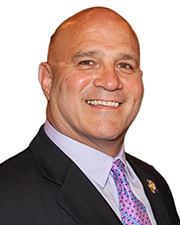News:
Construction Design & Engineering
Posted: September 18, 2007
"Making a wish and checking it twice"
When was the last time you updated your media list? What do you mean, "What's a media list?" You don't have one? Other than your data base of clients and prospects, there's probably not a more important resource in your business development arsenal.
For the uninitiated, a media list is an up-to-date register of the names, addresses and contact people at all the publications, radio and television stations in your market area. (By publications, I mean daily and weekly newspapers, business journals, trade magazines, industry association newsletters and the like.) Without a complete and current media list, you're not taking full advantage of the public relations opportunities available to you and your company. Don't underestimate the promotional value that can be gained through many of these avenues, even the less obvious ones.
Putting together a media list isn't difficult; it simply requires a bit of legwork. Let's take the categories one at a time.
* Newspapers (dailies and weeklies)- Your local library's reference section, in all likelihood, carries some type of media directory. Among those most popular with PR professionals are Bacon's and Burrelle's Media Directory. Beware that what you find may be an older edition. But even if it's the latest issue, call each publication to confirm their address and in particular, the contact name (which in your case is probably the business or real estate editor). Why? Editors are highly mobile, often changing jobs.
* Business journals, trade magazines and industry newsletters- You're probably already familiar with many of these; for example, The Boston Business Journal, New Hampshire Business Review, Vermont Business, and, of course, the New England Real Estate Journal. Every industry has as least a couple of trade magazines and most industry associations publish their own newsletters. Several of the directories listed above also carry listings for business and trade publications. Follow the same steps, making sure to verify the accuracy of the information.
Don't eliminate national publications; they need news, too, and often are happy to run your press releases. (Don't exclude, either, trade magazines in industries where you may have an overlapping interest; i.e., if you're a contractor who does a lot of healthcare work, make sure publications like New England Healthcare Review are included on your list.)
* Radio and television- These folks should be on your media list also. Though more difficult to gain coverage from, it's still a good idea to include them in your mailings. News directors will eventually become familiar with you and your company, so when they're looking for someone to speak with about an industry-related story, you just might be the one they turn to. You'll find TV and radio media directories in the library also, however it's often as simple as looking in the TV Guide or local newspaper's program listings to find the station addresses. Once you identified them, just call and ask for name of the news director.
Once you've compiled your media list, put it on your computer in a way that a) allows you make changes easily, and b) permits you to print out labels for all those on your list. Every six months or so, have someone in your office call each publication and verify the contact person; mail directed to someone who's no longer in the position labels you as either sloppy or an amateur—or both.
Now that you've got this wonderful list up and running, what do you do with it? Just in case you haven't figured that out yet, the answer is—you send them stuff! What stuff? I recommend sending not only press releases, but newsletters, quarterly reports (if you're a public company), new promotional literature when it comes out, and anything else that helps create visibility and exposure for your company in a professional (though not gushingly promotional) manner.
Lastly, always remember these two important axioms:
1) The media needs your information every bit as much you want them to have it.
2) God helps those who hype themselves.
David Wood is a-copywriter, newsletter publisher and marketing consultant specializing in the construction industry, Deering, N.H.
MORE FROM Construction Design & Engineering
Timberline Construction Corp. completes renovation for Notre Dame Long Term Care facility
Worcester, MA Timberline Construction Corp. (Timberline) has completed an 18-month, 55,000 s/f renovation of the Notre Dame Long Term Care facility. The project transformed the nursing home into a modern, community-driven and patient-focused environment

Columns and Thought Leadership

Insulation experts are the unsung heroes of our clean energy progress - by Jeffrey Saliba
While not as well-known as Nobel-prize-winning economists, politicians, or international climate activists, your local union insulators are essential to reducing harmful carbon emissions across Massachusetts. We’re proud to advocate for cleaner energy in the halls of power, as well as do the skilled, physical work in schools, office buildings,

It’s time to lead: Confronting mental health in construction - by David Watts
As we close Mental Health Awareness Month, we must be clear: May isn’t just about ribbons, hashtags, or lunchtime mindfulness apps. It’s about responsibility to confront hard truths that linger in silence, and to challenge ourselves, as leaders in our industry, to do more.

Navigating tariffs and material uncertainty in today’s construction market - by Karl Ginand and Tiffany Gallo
As headlines around tariffs seem to dominate the news daily, many considering construction projects have anticipated major cost escalations and widespread supply issues. While tariffs haven’t driven pricing spikes to the extent once feared, the lasting impact has been a new layer of uncertainty, affecting more than just budgets.

Ask the Electrician: How do I prepare my commercial building for a disaster?
New England’s notorious weather – from fierce winter storms to summer squalls and fall hurricanes – can leave businesses in the dark. While power outages are often blamed on storms, they can also be caused by unforeseen events like accidents or construction mishaps.

 (1) (1).png)








.png)
.png)